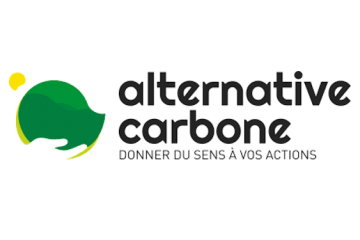Pre-feasibility study of a REDD+ project in Maritime Guinea Guinée
![]() ENVIRONMENT
ENVIRONMENT ![]() FORESTRY
FORESTRY

Services: Diagnostics and feasibility studies
Countries: Guinée
Dates of intervention: 2010/06
Amount executed: 11 000 €
Total amount of the service: 11 000 €
Main backer: Alternative carbone - Client
Main beneficiary: Alternative carbone
Support provider: Olivier BOUYER
Experts: Olivier BOUYER
Certificate of satisfactory executionMission de pré-faisabilité de projets REDD+ en Guinée Conakry
Context of the service
Alternative Carbone wanted to invest in REDD+ projects in Guinea and called on an ad hoc consultancy. The terms of reference were very ambitious, in the time allotted for the mission: Compatibility of the project with the international and national framework on REDD+; Analysis of available and context-appropriate REDD+ methodologies; Methodological options for establishing the baseline scenario; Definition of project areas (reference, leakage, accreditation); Estimation of the carbon potential of the project; Legal analysis relating to land and carbon law; Project risk analysis; Estimation of project development costs (drafting of the Project Design Document (PDD), validation and registration of the project, implementation of field actions, etc.); Assessment of the capacity of local actors in the development of the project; Preliminary work plan for the development of the project; if possible, write a Project Idea Note (PIN) with the above elements.
Services provided
Field visits were carried out on the main landscapes of the area, interviews were held with local authorities and populations, statistical and satellite data were analysed. All these elements made it possible to:
- Analyze the national and local context: sectoral policies, state of the rural economy, weight of mining concessions in the pre-targeted area, forest conditions in the country and in the area;
- Identify the drivers of deforestation/degradation: underlying (poverty, population growth, weak governance, etc.) and direct (slash-and-burn, fuelwood, mining, etc.);
- Analyze the types of possible projects: REDD sensu stricto, afforestation/reforestation, sustainable management of agricultural soils and discuss their advantages/disadvantages, the technical and methodological limitations of each of them;
- Identify possible project activities: sustainable management of fuelwood supply, afforestation on degraded mining tiles or village plots, sowing under vegetation cover, etc.,
- Identify a priori adaptable labels and methodologies, particularly under the Community Carbon and Biodiversity Standard (CCBS) and the Voluntary Carbon Standard (VCS);
- Make initial drafts of business plans: volumes of emissions avoided or absorptions, valuation under different price assumptions, identification of investment risks, etc.
Summary of the service
Pre-feasibility study of a REDD+ project in Maritime Guinea: Analysis of the national and local context; Identification of drivers of deforestation/degradation; Analysis of possible project types, their advantages/disadvantages, technical and methodological limitations of each of them; Identification of possible project activities; Identification of labels and methodologies that are a priori adaptable; First drafts of business plans.